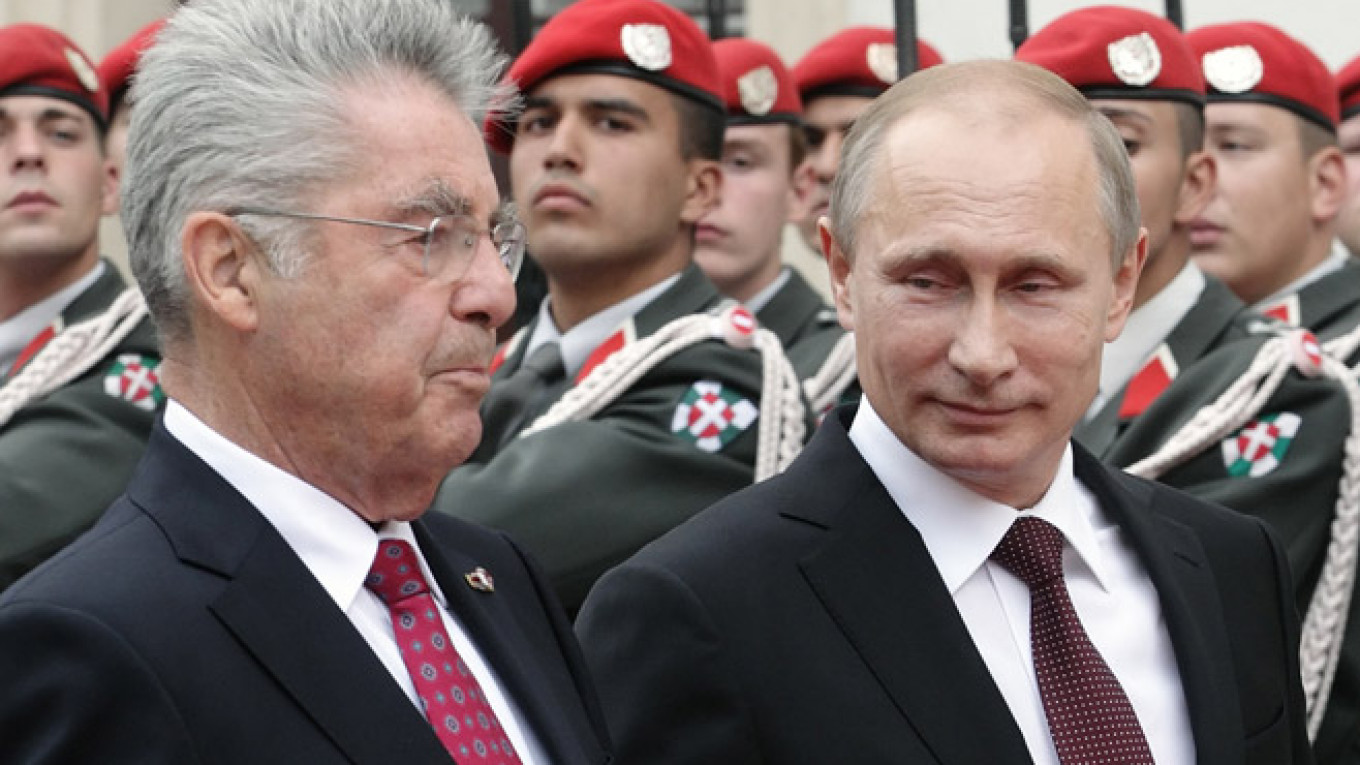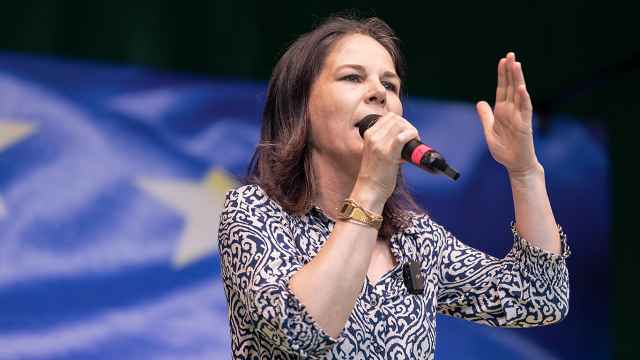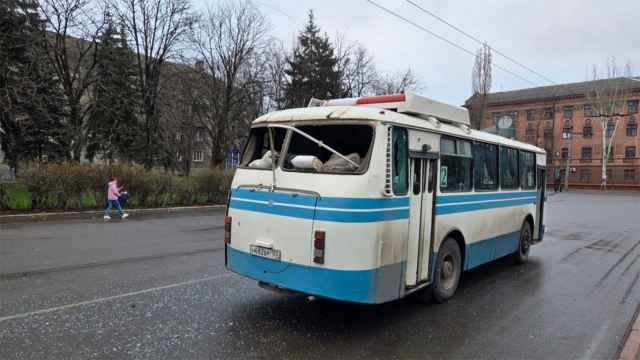In an ostentatious demonstration of goodwill after months of violent conflict in Ukraine for which the West has blamed Russia, President Vladimir Putin asked the parliament's upper chamber Tuesday to revoke a March 1 resolution granting him the authority to use military force in Ukraine, the Kremlin said on its official website.
The move is largely symbolic, political analysts said, as Russia is believed to be acting in Ukraine through militant ragtag proxies rather than regular troops, but it is still a signal that Russia does not want a further escalation of the crisis.
"Putin is removing the sword of Damocles from over Ukraine, because the West was really concerned about the movement of Russian troops near the Ukrainian borders," said Alexei Makarkin, a researcher with the Center for Political Technologies think tank.
Ukrainian President Petro Poroshenko welcomed the move Tuesday, calling it "the first practical step toward the stabilization of the situation in [eastern Ukraine's] Donbass following the Russian president's official expression of support for Ukraine's peace plan," according to Poroshenko's website.
The Federation Council, the upper house of the Russian parliament, will consider Putin's request Wednesday, when it is certain to be passed by an overwhelming majority.
"We believe that revoking approval for the use of military force will be a catalyst for peaceful negotiations," Viktor Ozerov, chairman of the upper chamber's defense and security committee, told RIA Novosti on Tuesday.
Russian markets reacted positively to the news, with key indexes growing by up to 3.6 percent.
Putin's announcement came on the heels of a phone conversation Monday with U.S. President Barack Obama.
Obama called upon Putin to put pressure on pro-Russian separatists to abide by the cease-fire announced by Poroshenko the day before and to halt the flow of weapons for the insurgents across the Russian border into Ukraine.
Ukraine and Western governments accuse the Kremlin of supporting the pro-Russian rebels in eastern Ukraine and of planning a military invasion into the former Soviet republic after the Moscow-friendly President Viktor Yanukovych was removed by a popular uprising in Kiev and fled to Russia in February. Russia has since annexed Ukraine's Crimean peninsula on the Black Sea and, most recently, cut off gas supplies to Ukraine. Moscow denies lending any military support to the separatist rebels in Ukraine's Donetsk and Luhansk regions.
Western governments have responded by slapping economic and visa sanctions on a handful of individuals from Putin's close retinue and some of the companies they own.
Putin's proclaimed goal is not to allow Ukraine — the second-largest Slavic nation after Russia — to turn into a political and military ally of the West. Kiev is set to sign an association agreement with the European Union on Friday.
Obama also warned Putin on Monday that the U.S. and its allies are ready to apply new economic sanctions against Russian individuals and companies, according to a transcript of the call published on the White House's official website.
The pro-Russian separatists agreed late Monday to halt fighting until Friday morning, following talks in Donetsk with Ukrainian officials, Russian Ambassador to Ukraine Mikhail Zurabov and the special envoy of the Organization for Security and Cooperation in Europe, Heidi Tagliavini.
Additional sanctions against Russia are on the agenda of the European Union summit scheduled for Thursday and Friday. German Chancellor Angela Merkel said Monday that introducing the new sanctions would depend upon Russia's moves to de-escalate the conflict in Ukraine in the coming days, Bloomberg reported.
Putin does not want an expansion of the sanctions that could target key Russian companies, said Makarkin.
"So far, the sanctions target [state oil giant] Rosneft head Igor Sechin but not Rosneft itself; and Russian Railways head Vladimir Yakunin but not the [state] railway monopoly," the analyst said.
Putin's move coincided with his trip Tuesday to Austria, where Russia's state energy behemoth Gazprom and Austria's oil and gas company OMV signed an agreement on the terms of construction on Austrian territory of the South Stream gas pipeline.
The pipeline project is actively backed by Putin as a means of decreasing Russia's dependency on Ukraine as a transit country for gas exports to Europe. The European Commission opposes the project, claiming it violates European anti-monopoly legislation.
See also:
Putin Asks Parliament to Revoke Russia's Right to Intervene in Ukraine
A Message from The Moscow Times:
Dear readers,
We are facing unprecedented challenges. Russia's Prosecutor General's Office has designated The Moscow Times as an "undesirable" organization, criminalizing our work and putting our staff at risk of prosecution. This follows our earlier unjust labeling as a "foreign agent."
These actions are direct attempts to silence independent journalism in Russia. The authorities claim our work "discredits the decisions of the Russian leadership." We see things differently: we strive to provide accurate, unbiased reporting on Russia.
We, the journalists of The Moscow Times, refuse to be silenced. But to continue our work, we need your help.
Your support, no matter how small, makes a world of difference. If you can, please support us monthly starting from just $2. It's quick to set up, and every contribution makes a significant impact.
By supporting The Moscow Times, you're defending open, independent journalism in the face of repression. Thank you for standing with us.
Remind me later.







